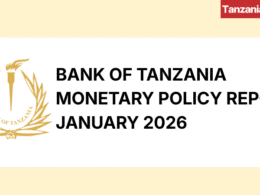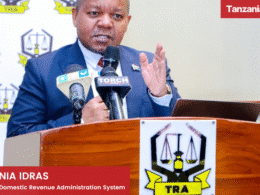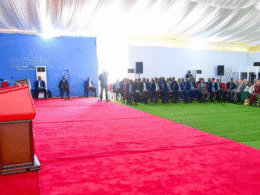The President of Tanzania Hon. Samia Suluhu Hassan chaired on 26th June 2021 the 12th Session of the National Business Council (TNBC), the official forum for dialogue between the public and private sector to facilitate mutual agreement on key issues pertaining to the improvement of trade, investment policies, regulations, and procedures in the country.
Hon. Hassan, who is also Chairman of the Council, discussed various issues including taxes, regulatory authorities, and forest products.
She reassured the members that the Government will continue to improve the investment and business environment to contribute to GDP, reiterating that the private sector is an important pillar of the country’s development because it contributes significantly to economic growth and stressed that no nation can make progress without the cooperation of the private sector.
This is why she instructed the Ministers of various sectors to sit down with the private sector to address the challenges they face.
President Samia also announced that the government has decided to revive talks on the implementation of the Bagamoyo port project, the Liganga iron ore, and the Mchuchuma coal mine and power project to accelerate economic growth in the country.
Regarding strategies to support the tourism and aviation sectors that have been affected by the Covid-19 pandemic, President Hassan said the government has already reduced various fees including the Tanzania Tourism Business License (TTBL) from USD 2,000 to USD 500 for travel companies with 1 to 3 vehicles.
For her part, the Chairperson of the Tanzania Private Sector Foundation (TPSF) Angelina Ngalula thanked the Government for various measures taken recently to create a conducive and friendly environment for traders and investors, including the abolition of certain taxes and levies.
The Bagamoyo Port Project
The Bagamoyo port is a USD10 billion tri-government venture between Tanzania, China, and Oman, via the state-run China Merchants Holdings International (CMHI) and Oman’s State General Reserve Fund (SGRF).
The port is set to handle 20 million TEU by 2045 and will be the largest port in East Africa when completed, and aims at making Tanzania a trade and transport hub in East Africa.
It will reduce the congestion at the Dar Es Salaam port, will handle 25 times the amount of cargo, and will include an affiliate industrial zone that is expected to host more than 1,000 factories that will have rail links to the TAZARA Railway and Tanzanian Central Railway.
Contracts to begin port construction were signed in October 2015 and phase I was set to be completed in 2017.
However, the project was later canceled by the new Magufuli administration in January 2016 to renegotiate the contractual terms. Negotiations between the governments of China and Tanzania continued ever since.
However, in June 2019 President Magufuli canceled the Bagamoyo project, accusing the Chinese counterparts of presenting exploitative and awkward terms in exchange for financing.
President Magufuli also argued that the construction of Bagamoyo port would undermine the major ongoing expansion of Dar es Salaam port.
Liganga Iron Ore and Mchuchuma Coal Projects
The Mchuchuma project includes the construction of a 600MW coal-fired power station, of which 250MW will be used by the iron plant, while the remaining 350MW will feed the national grid.
The Liganga iron ore mine holds the biggest iron resources in Tanzania with proven reserves of 126 mt.
The Liganga iron ore and the Mchuchuma coal mining and power projects, worth USD 3 billion, were to be implemented by the Tanzania China International Mineral Resources Ltd (TCIMRL) back in 2016.
However, the projects stalled as their final approval was once again delayed by the Magufuli administration.











